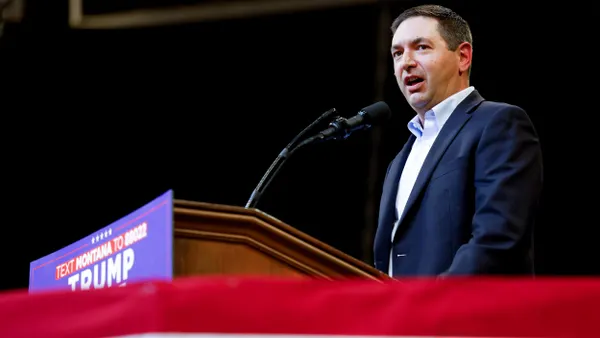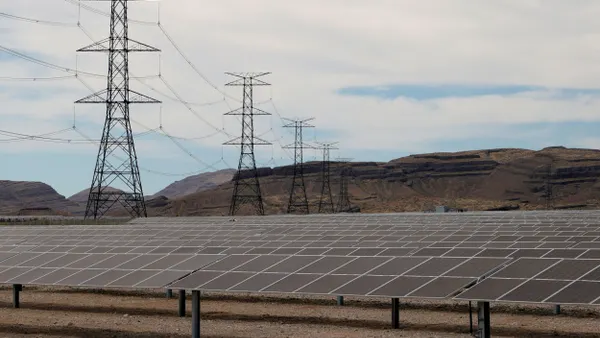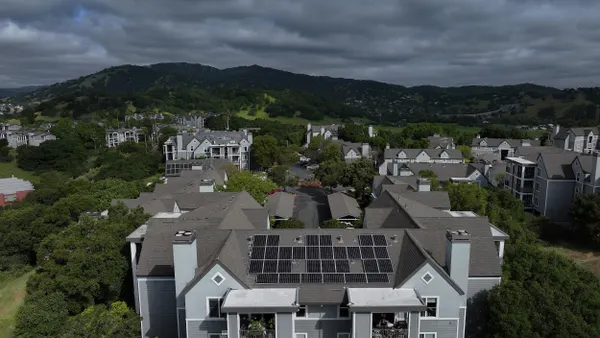Dive Brief:
- A Virginia hearing examiner has determined third party financing for residential solar installations is legal under state law, rejecting arguments from Appalachian Power that such power purchase agreements are not allowed. The hearing evaluated Appalachian Power's request for an experimental rider for nonresidential customers to purchase renewable generation from a third party developer as part of its Renewable Generation Purchase Program.
- The findings will still need to be considered by the State Corporation Commission, but solar advocates say the ruling could help open up Virginia's solar industry while cementing net metering's status as a viable alternative to the proposed rider.
- Last year, regulators directed Dominion to consider a third party developer to construct a utility-scale solar project rather than shifting the costs on ratepayers, making it the first solar power purchase agreement (PPA) allowed in the state.
Dive Insight:
Appalachian Power argued that PPAs were only allowed under a Dominion pilot program, but Chief Hearing Examiner Deborah Ellenberg dismissed those arguments in recommending the utility's proposed rider be rejected.
"Certainly there are limitations ... to that amount of behind-the-meter generation that customers can contract for, but net metering does provide an option for customers," she wrote in the decision. And "contrary to APCo's contention, [Virginia law] does allow customers to contract with third parties to 'own, operate, or both, an electrical generating facility' that complies with the other requirements of the Code."
Solar advocates hailed the decision as a major step forward for Virginia's renewable industry. "The ruling confirms that Virginians have the right to use common sense financial tools to choose solar power without utilities acting as the middle men.” said Will Cleveland, staff attorney at the Southern Environmental Law Center.
SELC represented Sierra Club, Chesapeake Climate Action Network, and Appalachian Voices, in the case. Following briefs and public comments, Ellenberg's decision will be considered by the full commission.














